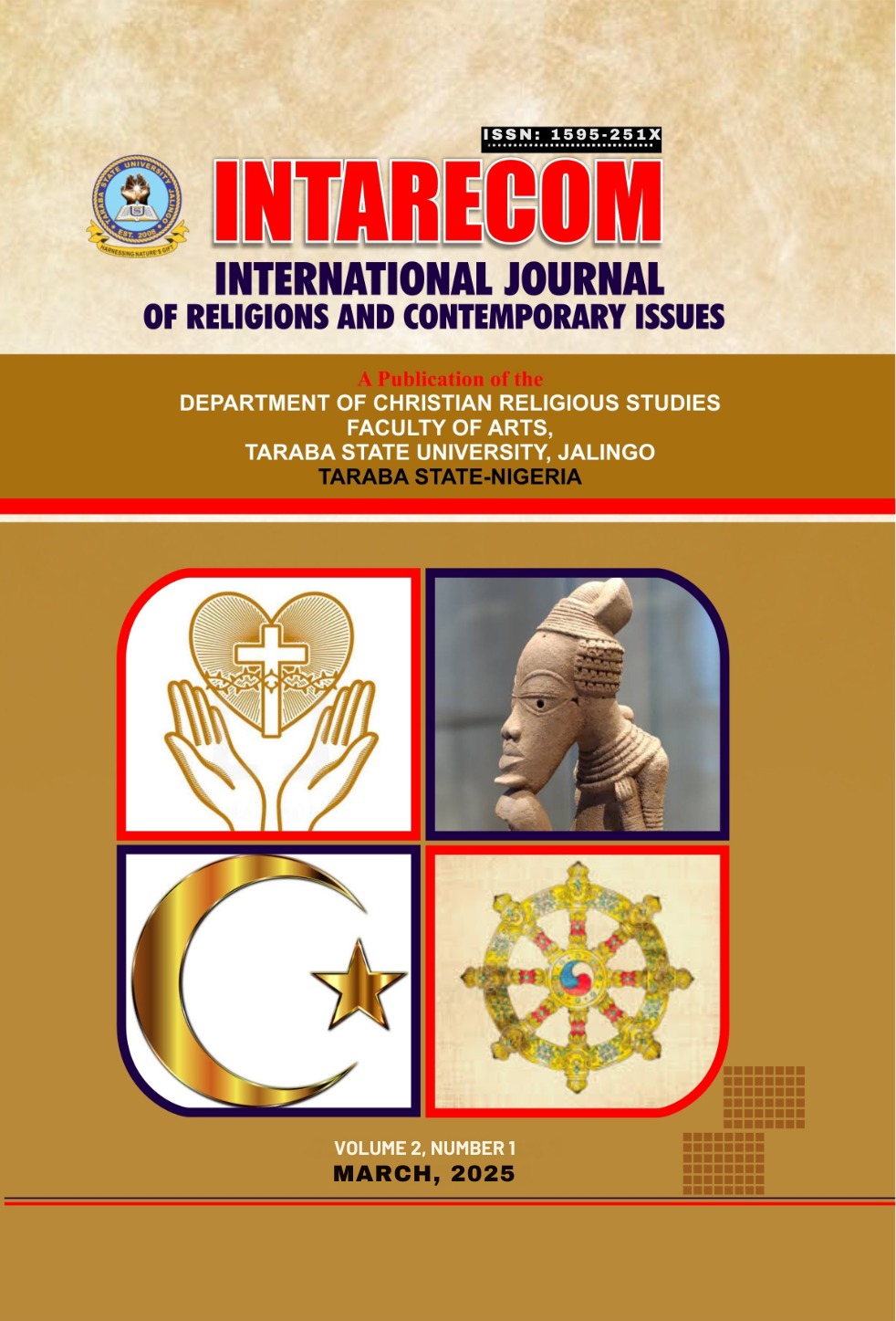POLITICS AND GOVERNANCE IN NIGERIA: THE IMPACT OF RELIGION IN A PLURALISTIC SOCIETY
Keywords:
Politics, Governance, Religion and Pluralistic SocietyAbstract
Politics is the mechanism for selecting leaders who will engage in the governance of any democratically orientated society. Therefore, its significance cannot be diminished. This article, titled “Politics and Governance in Nigeria: The Impact of Religion in a Pluralistic
Society,” studied the role of religion in achieving equilibrium in politics aimed at fostering effective governance within a diverse community. The study revealed that the Nigerian state is fraught with complexities in its political orientations that have impeded human capital development. It has also deteriorated relationships, particularly those of an ethno-religious kind. The paper recommends, among other measures, that Christian and Muslim clerics endeavour to instill appropriate religious and ethical values in their followers; that Christianity and Islam seek mutual understanding through consensus, facilitated by religious dialogue and trust-building; and that Nigeria's political elites and impoverished populations, transcending religious, regional, ethnic, and political divisions, should resist the inclination to conflate religion with politics or exploit religion as an instrument of partisan politics due to
the complexities involved.

